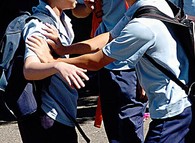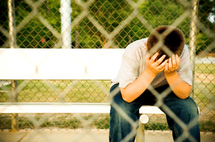Toshio Ohsako (1997) took ten separate studies on school violence from countries on every continent. While they all had different types of violence depending on certain factors, Ohsako (1997, p. 12) classified violence into three broad groups:
| Student Relations Personality clashes, bullying, alienation of a cultural or socio-economic group, isolation of an individual or sub-culture, gender clashes, gang violence | Teachers and School Environment School culture that condones violence, existing violence, how teachers recognize/handle bullying, poor pupil-teacher relationships, poor academic performance, culture of bullying, irrelevant curricula | Societal Problems Media's intensifying coverage of school violence, political coups or general unrest, civil wars, gang violence, overcrowded or irregular transportation, alcohol and drugs | Parental/Familial Issues Broken homes improper parenting, lack of "family values with good moral and religious guidelines," poor parental support, inconsistent or unjust discipline, |
| Society because of the widespread media attention given to perpetrators of violence (which I think exacerbates the problem and lays blame in the wrong areas) and the culture of student coddling (pushed mainly by developmental psychologists afraid of damaging self-esteem) | Parents because of poor parenting (sheltering their child, providing a bad example), nonexistent or inconsistent discipline (give in to their child's "demands," cater to their every whim), and lack of supporting teachers (side with their children and assume the teacher is at fault: what I call "angel-child syndrome) |





 RSS Feed
RSS Feed
